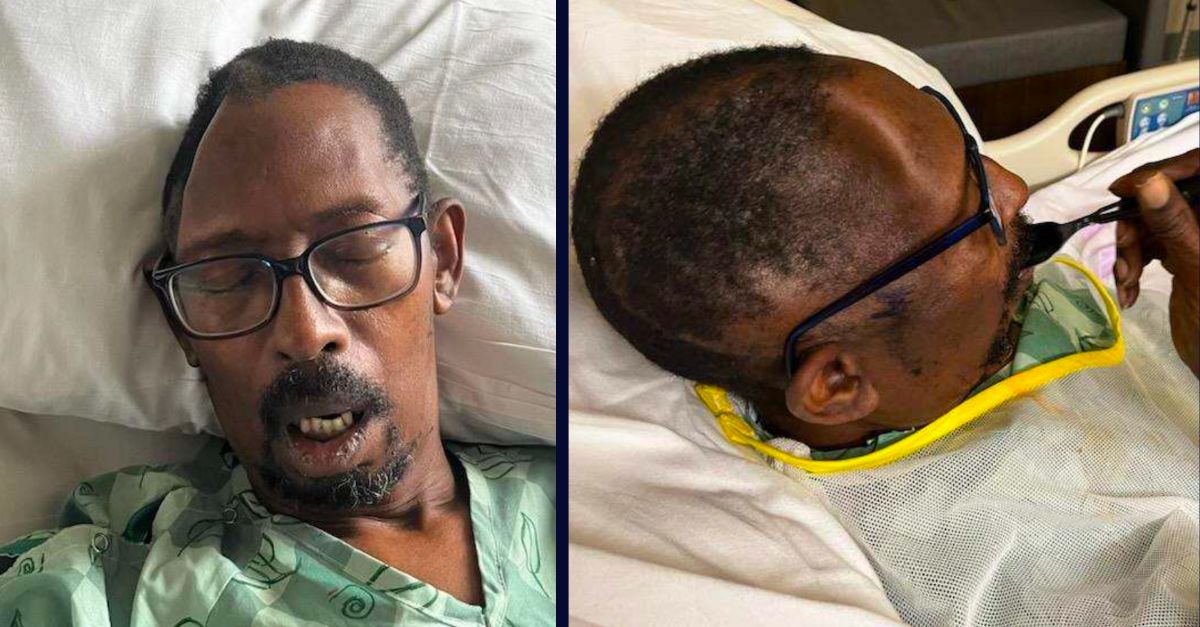
Fernando Cluster (Hornsby Law Group)
A hospital lost a part of a Georgia man’s skull and charged him $19,000 for a synthetic skull replacement piece that had to be removed after it became infected, a lawsuit by the patient alleges.
Fernando Cluster, 62, was having surgery for a brain bleed and had to have part of his skull removed last year at Emory University Hospital Midtown in Atlanta. The hospital misplaced a small section of his skull during the procedure and later billed him for it even though it had to be replaced because it became infected, the lawsuit said.
“It is shocking that a medical provider like Emory would lose part of one of its patient’s skulls and then refuse to accept responsibility,” said the patient and his wife in a statement emailed to Law&Crime on Saturday by their attorney, Chloe Dallaire, of the Hornsby Law Group.
“We now have to live with the consequences of Emory’s negligence, including daily fear about another infection in my head and medical costs,” the statement went on. “We want to know if this has happened to other patients to see if they have been given an explanation by Emory. Our goal is to make sure this never happens to another patient again.”
Representatives from Emory have so far declined to comment, local ABC affiliate WSB-TV reported.
The ordeal that began on Sept. 30, 2022, is laid out in the lawsuit filed on Aug. 8 in Georgia, when Cluster was admitted to the hospital after his lawyer told Law&Crime he passed out and fell.
The man was diagnosed with an “intracerebral hemorrhage” and underwent a “decompressive hemicraniectomy,” a procedure that involved removing a portion of his skull or “bone flap.” The piece of skull removed measured 12 by 15 centimeters, court documents said.
After he healed from the surgery, he was set to have his bone flap re-implanted. On Nov. 11, 2022, as he was being prepared for the cranioplasty, “Emory personnel could not identity Plaintiff Mr. Cluster’s bone flap,” according to court documents.
When Emory’s personnel went to retrieve the bone flap, “there were several bone flaps with incomplete or missing patient identification,” and therefore, Emory “could not be certain which if any of these belonged to Mr. Cluster,” the lawsuit said.
“After a delay, Plaintiffs were ultimately informed that Mr. Cluster’s bone flap could not be found,” court documents said.
A neurosurgery update progress note from a doctor provided to Law&Crime by Cluster’s lawyer outlined what happened when operating room staff could not find the flap. That alleged admission more or less tracks with what is written in the lawsuit.
“We inspected the freezer where bone flaps are stored and could not find a bone flap with Mr. Cluster’s patient identification,” the note reads. “There were several bone flaps with incomplete or missing patient identification, but we could not be certain which if any of these belonged to Mr. Cluster.”
Cluster’s cranioplasty surgery was canceled and rescheduled for Nov. 23, 2022, so a synthetic implant flap could be made, extending his hospital stay and prompting the hospital to charge him the huge expense for it, the lawsuit alleges.
After the synthetic flap became infected, additional surgery was required, court documents said.
Dallaire said his client is currently at home and still recovering from his infection. She said the lawsuit seeks a dollar amount to be determined at trial for damages for his physical and emotional pain and suffering, his wife’s loss of consortium, and his medical expenses — estimated in the lawsuit at over $146,845.
Have a tip we should know? [email protected]








